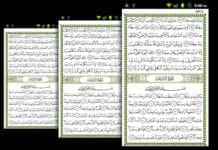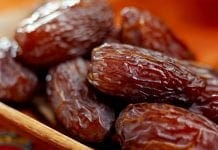Sahl ibn Sa‘d reported that Allaah’s Messenger (sallAllahu ‘alaihi wa sallam) said, “The people will continue to prosper as long as they hasten to break the fast.” [Collected by al-Bukhaaree and Muslim.][1]
Sahl ibn Sa‘d ibn Maalik was from the Khazraj tribe of Madeenah. It is said that his name was originally “Huzn (sadness)” and the Prophet (sallAllahu ‘alaihi wa sallam) renamed him “Sahl (easy)”. When the Prophet (sallAllahu ‘alaihi wa sallam) died he was only fifteen years old. He was the last of the companions to die in Madeenah in the year 91AH (some said it was 88AH).
Ahmad’s collection had the addition:
“…and they delay the suhoor.” [2]
Aboo Daawood’s narration had the addition:
“Because the Jews and Christians delay the breaking of the fast until the stars appear.” [3]
In the commentary on Mishkaat al-Masaabeeh the author added, “It then became in our nation a symbol for the people of innovation and one of their characteristics.” The hadeeth is proof for the recommendation for hastening the breaking of the fast when it is confirmed that the sun has set by visual sighting or the informing of someone for whom it is permissible to act on his statement. He mentioned the reason, to be contrary to the Jews and Christians. Al-Muhallab said that the wisdom behind it is to avoid increasing the day by taking from the night and because it is more considerate for the fasting person and better to strengthen him for worship. Ash-Shaafi‘ee said, “Breaking the fast early is recommended and delaying it is not disliked (makrooh), except for a person who deliberately delays it and considers it better.” In my opinion, there is in the Prophet’s permission to continue the fast until the morning, as in Aboo Sa‘eed’s hadeeth, evidence that delaying the breaking of the fast is not disliked if it is a means to control the soul and repel its desires.[4]
[1] Sahih Al-Bukhari, vol.3, p.102, no.178 and Sahih Muslim, vol.2, p.533, no.2417.
[2] Musnad Ahmad, CD no. 20350.
 Aboo Tharr quoted Allaah’s Messenger (sallAllahu ‘alaihi wa sallam) as saying, “My Nation will remain well as long as they hasten to break the fast and delay the morning meal.” Al-Albaanee declared it munkar because of the presence of Ibn Lahee‘ah and its contradiction of other narrations without the addition. (Irwaa al-Ghaleel, vol. 4, p. 32, no. 917). Proof for its delayal can be found in Zayd ibn Thaabit’s narration in which he said, “We ate the early morning meal with the Prophet (sallAllahu ‘alaihi wa sallam) then he stood up for the prayer.” He was asked, “How much time was there between the athaan and the suhoor?” He replied, “The time sufficient for reciting fifty verses.” (Sahih Al Bukhari, vol.3, p.79, no.144 , and Sahih Muslim)
Aboo Tharr quoted Allaah’s Messenger (sallAllahu ‘alaihi wa sallam) as saying, “My Nation will remain well as long as they hasten to break the fast and delay the morning meal.” Al-Albaanee declared it munkar because of the presence of Ibn Lahee‘ah and its contradiction of other narrations without the addition. (Irwaa al-Ghaleel, vol. 4, p. 32, no. 917). Proof for its delayal can be found in Zayd ibn Thaabit’s narration in which he said, “We ate the early morning meal with the Prophet (sallAllahu ‘alaihi wa sallam) then he stood up for the prayer.” He was asked, “How much time was there between the athaan and the suhoor?” He replied, “The time sufficient for reciting fifty verses.” (Sahih Al Bukhari, vol.3, p.79, no.144 , and Sahih Muslim)
Delaying the morning meal means that it has to be a light meal as the time would not be sufficient for a large meal. It was the Sunnah of the Prophet (sallAllahu ‘alaihi wa sallam) to have a light early morning meal. This Sunnah allows those who fast to experience hunger and thirst and to learn the lessons of sympathy for those who suffer from hunger and thirst due to circumstances beyond their control.
[3] The wording in Sunan Abu Dawud, vol.2, p.646, no.2346, Kitaab: Sawm; Baab: Maa yustahabb min ta’jeel al fitr and authenticated in Saheeh Sunan Abu Dawood, vol.2, p.58, no.2353 is as follows:
Aboo Hurayrah reported that the Prophet (sallAllahu ‘alaihi wa sallam) said, “The religion will remain prominent as long as people hasten to break the fast, because the Jews and Christians delay.”
[4] In Sunan Abu Dawud, vol.1, p.110, no.421, Kitaab: Salaah; Baab: Fee waqt al maghrib and authenticated in Saheeh Sunan Abu Dawood, vol.1, p.123, no.418, hastening to pray the sunset prayer was also recommended:
Marthad ibn ‘Abdillaah related that when Aboo Ayyoob came to us during a military campaign while ‘Uqbah ibn ‘Aamir was the governor of Egypt and he delayed the Maghrib Prayer, Aboo Ayyoob got up and went to him and said, “What is this prayer, O ‘Uqbah?” He replied, “We were distracted.” He said, “Haven’t you heard Allaah’s Messenger (sallAllahu ‘alaihi wa sallam) say, ‘My nation will remain well as long as they don’t delay the Maghrib until the stars appear?’”
Consequently, the breaking of the fast should be according to the Sunnah, with a few dates and water, and not a full meal which causes people to delay Maghrib prayer until the beginning of ‘Ishaa. The time for Maghrib prayer is the shortest of all the prayers, therefore great care must be taken to make it during its prescribed time. Furthermore, by breaking the fast lightly and delaying the meal, the lessons in self-control learned during the daylight hours of the fast are practically implemented.












